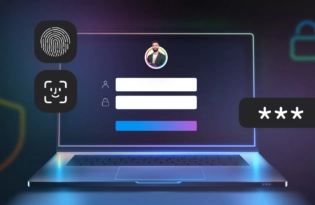How to improve your cross-border payment capabilities
If your business works with international clients, then you’re probably aware of cross-border payments. Not only do they allow you to expand beyond domestic markets, they can help you reach new customers, and benefit from opportunities overseas.

How to improve your cross-border payment capabilities
If your business works with international clients, then you’re probably aware of cross-border payments. Not only do they allow you to expand beyond domestic markets, they can help you reach new customers, and benefit from opportunities overseas.
In recent years, cross-border payments have been growing rapidly. According to the Bank of England, the global market has seen a two-thirds increase from 2017, and is expected to be reach a whopping $250 trillion in 2027.
Of course, as a business owner, you’ll know that managing international payments isn’t without its challenges. In fact, Statista recently reported that 28% of consumers say cross-border efficiency should be a top priority for banks.
As such, more businesses are turning to cross-border payment companies like Payoneer to stay competitive in the global marketplace. They want a simplified approach to sending and receiving payments overseas.
With nearly two decades’ experience providing companies with access to global commerce, we wanted to share our advice on how to improve your cross-border payment capabilities.
The challenges of managing cross-border payments
Making an international payment is usually more complex than making a local one. Traditional banking systems can take several days to process a payment abroad, which can be frustrating for your business, and your customers.
So much so, that in 2022, the Financial Stability Board (FSB), published a report highlighting the need to improve cross-border payments. It called for international transactions to be cheaper, faster, more transparent, and more accessible by 2027.
Here are some of the challenges you may have come across when making a cross-border payment:
Slow transaction times
International payments are usually subject to long transaction chains that add delays to processing times.
Traditional banking systems are required to implement capital controls, handle documentation requests, and follow long compliance processes – all of which create financial bottlenecks for small and medium businesses (SMBs).
Regulatory red tape
Depending on your financial provider, some cross-border payments can involve multiple parties, such as banks, intermediaries, and regulatory bodies.
Of course, all international payments are subject to anti-money laundering laws, but long wait times can deter businesses from making them altogether. Payoneer’s recent report found that 81% of payment executives say regulatory requirements prevent their company from establishing new relationships that would require cross-border payments.
Expensive FX fees
International payments can also be expensive for SMBs. Fees and charges for currency conversion are common. As are intermediary bank fees, which add up over time.
Indeed, our report found that 66% of payment executives agree that high foreign exchange (FX) costs diminish their companies’ interest in establishing international relationships.
Outdated technology
Businesses that still use legacy systems for cross-border payments typically rely on batch cross-border payment processors. This limits visibility over transactions, causing delays in settlements. Old technology is also at a greater risk of cyberattacks. In fact, earlier this month, a cyberattack threatened the stability of the Iranian banking system, forcing a $3 million ransom deal.
Embracing digital platforms
To overcome the challenges of international payments, more businesses are partnering with cross-border payment gateways that offer virtual accounts. Online payment platforms give you the flexibility to manage your cash flow across currencies through a centralised account structure. Consequently, there’s less need to manage multiple local accounts in the same markets.
With a centralised online account, you’ll often have access to better payment sequencing. You’ll be able to manage your reporting under the one umbrella, and you can easily transfer balances between accounts across different currencies. In turn, your risk exposure is reduced, you can maximise liquidity, and operate in currencies that work best for you.
For example, with Payoneer, you can send and receive payments in more than 22 currencies. One Payoneer account connects you seamlessly to freelance marketplaces, networks, and business platforms in over 190 countries and territories.
The need for speed
Following the FSB’s report, more countries are working to speed up cross-border digital payments, benefiting SMBs that need predictable cashflow.
For instance, the European Commission is mandating the SEPA Instant Payment scheme across SEPA banks, enabling euro transactions in seconds. India’s UPI system moves funds in real-time with no fees, and Singapore’s PayNow system now accelerates payments to UPI.
If fast international payments are crucial, choose a provider with a real-time system. With Payoneer, you get quick cross-border conversions, top exchange rates, and no hidden charges when managing currencies.
Leveraging emerging technologies
When the International Standard ISO 20022 was introduced in 2004, it required all financial institutions to change the way they receive payment messages. To date, over 70 countries have adopted the new MX (message type XML) format, which offers more transparency and interoperability between banks and financial providers.
These standards are also more responsive to emerging technologies. Consequently, forward-thinking Fintech companies are using new technology to improve cross-border payment infrastructure.
By using blockchain technology, artificial intelligence (AI), digital wallets, and big data, companies like Payoneer can offer businesses low-cost SWIFT transactions. They can also offer secure bank transfers, and credit or debit card payments across multiple currencies.
Cutting the cost of international payments
When your business receives funds in a currency different from the processing currency, it’s usually charged foreign exchange (FX) fees. An innovative payment provider can offer competitive FX rates, lowering the cost of international payments.
With Payoneer, you can convert funds between currencies for low fees. Once you have a Payoneer account, you can send and accept funds from other Payoneer users for free in 9 currencies, with payments clearing in just a few hours.
Simplify cross-border payments with a flexible account
Simple, flexible international payments are key to driving global economic growth. Not only do fluid cross-currency payments improve the customer experience, they help businesses maintain cashflow and explore international opportunities.
At Payoneer, we believe every business should be able to handle international payments in a fast, secure, and flexible way. For sending and receiving b2b and b2c cross-border payments, a free Payoneer account does it all.
Our international team is available in 22+ languages to help you navigate your account options.
Enquire about a Payoneer account today.
Disclaimer
The information in this document is intended to be of a general nature and does not constitute legal advice. While we have endeavored to ensure that the information is up to date and correct, we make no representations or warranties of any kind, express or implied, about the completeness, accuracy, reliability or suitability of the information. In no event will we be liable for any loss or damage including without limitation, indirect or consequential loss or damage, or any loss or damage whatsoever incurred in connection with the information provided.
Related resources
Latest articles
-
How to simplify payment operations with Payoneer’s automation feature
Save time, reduce costs, and eliminate errors with Payoneer’s new payment automation feature.
-
How to prevent online payment fraud as an SMB
Prevent online payment fraud by overcoming challenges like phishing, fake accounts, and account takeovers (ATO) with enhanced security features from Payoneer.
-
Amazon Fees & Policy Updates 2024
Amazon regularly makes planned updates to fees and policies that may impact Payoneer customers that sell on Amazon. To keep Payoneer customers informed regarding upcoming and past updates, we’re providing a list of known changes to Amazon fees and Policy updates.
-
How Payoneer’s target exchange rate feature will help you save more on bank withdrawals
Boost savings with Payoneer’s target exchange rate feature.
-
Navigating phishing attacks: A guide to keeping your Payoneer account secure
Keeping your funds safe is our number one priority at Payoneer. While phishing attempts can happen, arming yourself with knowledge is key to keeping your data and money safe
-
Zoho Books and Payoneer integration guide
Learn how to seamlessly integrate Payoneer with Zoho Books. Follow our step-by-step guide to connect your accounts, create invoices, and manage payments efficiently. Optimize your financial operations today!














